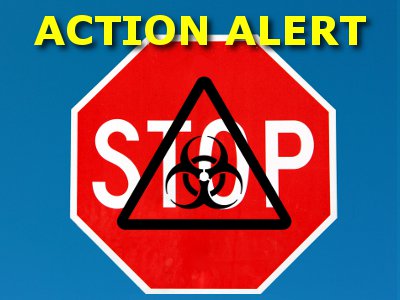Moratorium Reinstated; Fourth HIV Case Unconfirmed

CHATSWORTH, Calif. – Official confirmation of a fourth HIV infection within the population of adult performers remained unavailable Monday afternoon. None of the three most likely county health departments in California — Los Angeles, San Diego and San Francisco — would confirm knowledge of a diagnosis, although recent diagnoses might not hit the counties’ databases for as many as seven days.
A Radar Online report published Monday revealed unsubstantiated allegations about the existence of a fourth HIV-positive performer, based on statements obtained from AIDS Healthcare Foundation President Michael Weinstein. Though Weinstein told Radar a male performer had self-reported an evidently recent diagnosis to AHF, Weinstein declined to provide any further details, saying the performer had requested strict confidentiality.
FSC-PASS, the adult industry’s de facto health watchdog and performer-readiness database, had received no confirmed reports of a fourth HIV infection by Monday afternoon, according to spokeswoman Joanne Cachapero.
Regardless, adult industry trade association Free Speech Coalition invoked a voluntary production moratorium late Friday after a third performer in as many weeks tested positive for HIV. The new moratorium began a scant 10 days after a previous eight-day-long moratorium was lifted Aug. 27.
“Today, FSC-PASS was informed by one of the doctors affiliated with one of the PASS provider testing facilities that another performer has tested positive for HIV,” a statement FSC distributed late on Sept. 6 noted. “As a result, FSC is calling a moratorium on all production until further notice.”
The statement also revealed at least two medical doctors — Sean Darcy, MD, and Peter Miao, MD — were defining “an accurate first- and second-generational genealogy” in order to notify the performer’s scene partners and other sexual contacts of possible exposure to the disease, in addition to counseling the HIV-positive performer about healthcare options. Cachapero could provide no additional information about the process Monday afternoon, but said the FSC would release a statement on Tuesday.
“While we don’t have evidence to suggest an on-set transmission as opposed to a transmission from non-industry (off-camera) related activity, we are taking every measure to determine the source and to protect the performer pool,” the FSC’s Friday statement noted.
Darcy explained further.
“[T]he performer who has now tested positive for HIV had not performed since before the first moratorium and was prevented from performing due to the required retest [dated Aug. 19 or later],” he said. “Therefore, no performers were exposed to a new risk of on-set transmission as a result of this latest case.”
Following the previous outbreak, all active industry performers were advised to submit a “clean” panel of industry-standard health tests dated on or after Aug. 19 in order to be considered available for work in sexually explicit scenes.
“The cost of retests required for generational partners will be covered by FSC-PASS,” a Sept. 7 notice from FSC stated.
The current drama began Aug. 20, when FSC called for an indefinite production moratorium after a performer known as Cameron Bay publicly revealed she had tested positive for HIV during a routine industry health panel. As a rule, adult industry performers voluntarily undergo a screening for sexually transmitted infections every 14 to 28 days, and most adult content producers require “clean” tests from cast members before shooting sexually explicit scenes.
On Aug. 28, FSC lifted the production moratorium. Six days later, on Sept. 3, performer Rod Daily announced via Twitter that he, too, had tested positive for HIV. Daily primarily performed in gay adult content but was romantically involved with Bay. Daily has not yet spoken with the FSC or FSC-PASS about his diagnosis, Cachapero said Monday afternoon. Instead, he reportedly sought assistance from AIDS Healthcare Foundation.
AHF currently is embroiled in a lawsuit over Los Angeles County’s Safer Sex in the Adult Film Industry Act, a county ordinance that requires adult performers and other personnel on adult film sets to wear condoms and other barrier protection when a risk bodily fluids might be exchanged exists. Adult studio Vivid Entertainment and two performers challenged the constitutionality of the law; on Aug. 16 a federal judge struck down some provisions but left others intact. The judge also allowed AHF to intervene in the case in order to defend the law after AHF alleged L.A. County was unwilling to do so. The case is on appeal.
AHF wrote the ordinance, funded its addition to the ballot in November 2012 and mounted an enormous public relations campaign to promote the law’s passage. The organization also backs a similar statewide measure proposed by Assemblyman Isadore Hall III [D-Compton].
“It is … an outrage and a slow-motion crash that led to multiple infections based on the negligence of pornographers and Los Angeles County,” Weinstein told Radar Online on Monday. “All of these infections would have been prevented with the use of condoms.
“There is too much parsing [by FSC and FSC-PASS] over ‘cross-over,’ ‘on-set [versus] off-set,’ ‘window periods,’ etc.,” he added. “Sooner or later, driving without a seatbelt or having unprotected sex is likely to lead to injury — those are the facts.”









